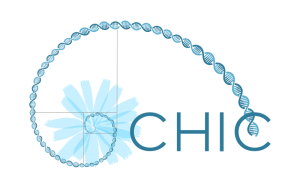Assessing the Intestinal Permeability and Anti-Inflammatory Potential of Sesquiterpene Lactones from Chicory
For immediate release:
We are pleased to announce the recently accepted scientific publication about chicory from one of our partners, Claudia Nunes dos Santos from iBET entitled, “Assessing the Intestinal Permeability and Anti-Inflammatory Potential of Sesquiterpene Lactones from Chicory”, published in Nutrients (https://doi.org/10.3390/nu12113547).
Chicory is a main dietary source of sesquiterpene lactones (SLs), which have underexplored bioactive potential. It has recently gained popularity due to large quantities of health promoting compounds in its roots, including inulin and SLs.
In the study, researchers have assessed the capacity of SLs to permeate the intestinal barrier to become physiologically available, using in silico predictions and in vitro studies with the well-established cell model of the human intestinal mucosa (differentiated Caco-2 cells). Researchers also evaluated the potential of SLs to modulate inflammatory responses through modulation of the nuclear factor of activated T-cells (NFAT) pathway, using a yeast reporter system. The study revealed Lactucopicrin as the most permeable chicory SL in the intestinal barrier model but had low anti-inflammatory potential. Accordingly, 11β,13-dihydrolactucin SL showed with the highest anti-inflammatory potential, which inhibited up to 54% of Calcineurin-responsive zinc finger (Crz1) activation, concomitantly with the impairment of the nuclear accumulation of Crz1, the yeast orthologue of human NFAT.
To learn more about the study, please follow this link: https://www.mdpi.com/2072-6643/12/11/3547
About CHIC Project
CHIC is the Chicory Innovation Consortium. Its objective is to implement New Plant Breeding Techniques (NPBTs) in chicory in order to establish it as a multipurpose crop for the production of health-related products with clear benefits for consumers, and to develop co-innovation pathways with stakeholders for game-changing technologies, such as NPBTs. CHIC will develop four different NPBTs. They will be used to steer bioprocesses in chicory and mobilize its under-explored potential to produce immunomodulatory prebiotics and medicinal terpenes. The conceptually different NPBTs will be assessed with respect to technological potential, risks, regulatory framework and their socio-economic impacts. This will be done in close consultation with a Stakeholder Advisory Group (SAG) composed of relevant stakeholders in industry and society. For more information, visit our website at chicproject.eu/
To watch the short animation about the study, please click here:
###

 This project has received funding from the EU Horizon 2020 research & innovation programme under grant agreement N. 760891.
This project has received funding from the EU Horizon 2020 research & innovation programme under grant agreement N. 760891.